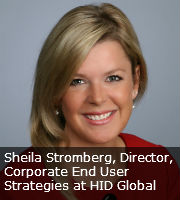Aging population in EMEA
IHS Research forecast health care access control in EMEA to grow 10 percent between 2012 and 2017. The reasons for this are an aging population that will need assistance, the use of further integrated technology to monitor patient health and a desire by the sector as a whole to improve access control and security in hospitals.
New Blood in Asia
Health care in Asia has been growing rapidly, with national health services trying to meet the demands of a population boom. However, an even more significant shift is in private hospitals, said Patrick Lim, Director of Sales and Marketing at Ademco Far East (an Ademco Security Group Company). “Some private hospitals take patient satisfaction seriously. Their executive teams strongly believe a safe, efficient, and productive health care environment is crucial to achieve excellent patient care and services. Their need for security, such as access control solutions, stretch far beyond the needs of national hospitals. Efforts to ensure the privacy, safety, and satisfaction of patients are given more attention in private hospitals than national ones. Theft, crime or intrusions that can cause serious damage to the reputation of such hospitals are out of the question.”
Law and Order
HIPPA and more
The Health Insurance Portability and Accountability Act of 1996 (HIPAA) is the broadest regulation and has the most tangible impact on security spending in the U.S. Its privacy rules mean tighter control of patient information. “Medical records departments have to be accessible to the public, but have to keep the public from seeing patient health information,” said Ben Myers, Director of Plant Operations at Deaconess Medical Center. “This creates a need for access control into these areas that can be tracked and tightly controlled.”
"At the national level, the Joint Commission accredits and certifies more than 20,000 health care organizations and program in the U.S. This independent nonprofit sets specific policy and demands hospitals put processes in place that stand up to forensic review at audit or after incidents", said William Plante, Director of Professional Services at Aronson Security Group.
In addition to HIPAA, there are many regulatory requirements. Non-compliance will result in fines and punishments including potential facility closure, said Sheila Stromberg, Director, Corporate End User Strategies at HID Global. Key regulations include those related to the American Recovery and Reinvestment Act, which extends privacy protections beyond HIPAA to include additional entities, such as vendors of personal health records, and includes the 2009 Health Information Technology for Economic and Clinical Health Act, or HITECH Act, which adds notification requirements for health information security breaches and implements data security standards and procedures for electronic health records. Other agencies regulating hospital security include: the Centers for Medicare and Medicaid (CMS, which focuses on clinical aspects of health care organizations and also looks at practices involving security and safety); the Occupational Safety and Health Administration (OSHA publications include #3148, “Guidelines for Preventing Workplace Violence for Health Care & Social Service Works”); and the National Institute for Occupational Safety and Health. There also are industry guidelines to consider, which help mitigate potential threats and hazards, including the IAHSS, which produces a booklet called “Security Guidelines for Healthcare Facilities.”
punishments including potential facility closure, said Sheila Stromberg, Director, Corporate End User Strategies at HID Global. Key regulations include those related to the American Recovery and Reinvestment Act, which extends privacy protections beyond HIPAA to include additional entities, such as vendors of personal health records, and includes the 2009 Health Information Technology for Economic and Clinical Health Act, or HITECH Act, which adds notification requirements for health information security breaches and implements data security standards and procedures for electronic health records. Other agencies regulating hospital security include: the Centers for Medicare and Medicaid (CMS, which focuses on clinical aspects of health care organizations and also looks at practices involving security and safety); the Occupational Safety and Health Administration (OSHA publications include #3148, “Guidelines for Preventing Workplace Violence for Health Care & Social Service Works”); and the National Institute for Occupational Safety and Health. There also are industry guidelines to consider, which help mitigate potential threats and hazards, including the IAHSS, which produces a booklet called “Security Guidelines for Healthcare Facilities.”